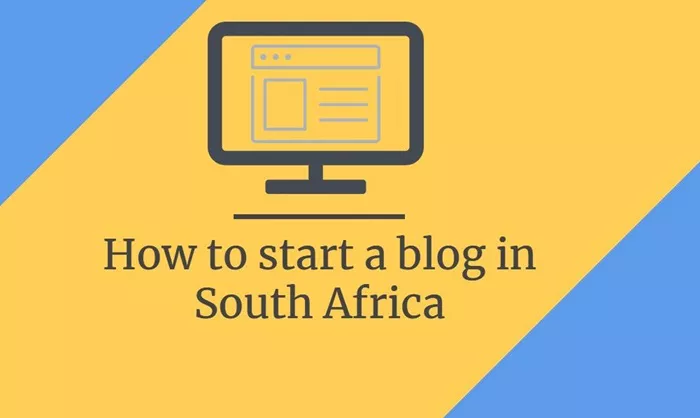Blogging has become a lucrative venture for many individuals across the globe, and South Africa is no exception. With the right approach, dedication, and strategies, you can turn your blog into a profitable income stream. This article explores practical steps to help South African bloggers achieve financial success, providing a comprehensive guide tailored to the unique opportunities and challenges of the local market.
Understanding Blogging as a Business
Before diving into monetization strategies, it is essential to recognize blogging as a legitimate business. Many successful bloggers treat their platforms like startups, focusing on growth, branding, and customer engagement. Here’s what you need to know:
Choosing a Profitable Niche: The foundation of any successful blog is selecting a niche that balances your interests and market demand. Popular niches in South Africa include personal finance, travel, lifestyle, technology, and food. Researching keywords and assessing competition can guide you toward a niche with high revenue potential.
Building a Professional Blog: Invest in a reliable hosting platform and create a professional website. Platforms like WordPress, Wix, or Squarespace are excellent options. Ensure your blog is visually appealing, mobile-friendly, and easy to navigate. High-quality visuals and fast load times can enhance user experience and boost engagement.
Generating Traffic to Your Blog
Traffic is the lifeblood of any monetized blog. Without visitors, earning revenue is nearly impossible. Here are some ways to drive traffic:
Search Engine Optimization (SEO): Optimizing your blog posts for search engines is crucial. Focus on using relevant keywords, crafting compelling meta descriptions, and incorporating internal links. Local SEO can help you target South African readers more effectively.
Leveraging Social Media: Platforms like Instagram, Facebook, and Twitter are excellent tools for promoting your blog. Join relevant groups, participate in discussions, and share your content regularly to reach a broader audience.
Networking with Other Bloggers: Collaborate with fellow South African bloggers to exchange backlinks, guest post on each other’s sites, and share audiences. This strategy can amplify your reach and enhance credibility.
Monetization Strategies for South African Bloggers
Once you have built a solid foundation and attracted traffic, the next step is monetizing your blog. Below are various ways to generate income:
1. Affiliate Marketing
Affiliate marketing involves promoting products or services on your blog in exchange for a commission on sales generated through your referral links. Popular affiliate programs available to South African bloggers include:
- Takealot Affiliate Program
- Loot Affiliate Program
- International programs like Amazon Associates
Choose products relevant to your niche and audience for maximum conversions.
2. Sponsored Posts
Collaborate with brands to create sponsored content that aligns with your blog’s theme. Companies are willing to pay for exposure to your audience, especially if your blog has high traffic and engagement levels.
3. Display Advertising
Platforms like Google AdSense allow you to display ads on your blog and earn revenue based on clicks or impressions. While this method may not yield substantial income initially, it can become lucrative as your traffic grows.
4. Selling Digital Products
Create and sell eBooks, online courses, or printables related to your niche. For instance, a South African food blogger could sell a digital cookbook featuring local recipes, while a travel blogger might offer a guide to exploring the country.
5. Offering Services
Many bloggers monetize by offering services such as freelance writing, consulting, or web design. Your blog serves as a portfolio, showcasing your expertise and attracting potential clients.
6. Memberships and Subscriptions
Offer exclusive content to paying subscribers through a membership program. Platforms like Patreon make it easy to manage memberships while rewarding loyal readers.
Navigating Challenges as a South African Blogger
While blogging in South Africa offers great opportunities, there are challenges to consider:
Connectivity Issues: Internet access can be costly or limited in certain areas, affecting both bloggers and their audience. Focus on optimizing your content for fast loading to accommodate readers with slower connections.
Limited Local Sponsorship Opportunities: Securing sponsorships from South African brands may be challenging for niche-specific blogs. Building an international audience can broaden your options.
Income Fluctuations: Blogging income can be unpredictable, especially in the early stages. Diversifying your revenue streams and saving for lean months can help you maintain financial stability.
Maximizing Blogging Success in South Africa
To thrive as a blogger, you need more than just passion. Here are some additional tips:
Consistency Is Key: Regularly publishing high-quality content helps build trust and keeps your audience engaged. Aim to post at least once a week, or more if possible.
Engage With Your Audience: Respond to comments, conduct polls, and listen to your readers’ feedback. Building a loyal community increases the likelihood of long-term success.
Track Your Progress: Use analytics tools like Google Analytics to monitor your blog’s performance. Identify trends, understand your audience, and adjust your strategy accordingly.
Stay Informed: Keep up with blogging trends and algorithm updates to remain competitive. Joining blogging communities and attending webinars can provide valuable insights.
Conclusion
Making money through blogging in South Africa is achievable with the right strategies and dedication. By selecting a profitable niche, driving traffic, and implementing diverse monetization methods, you can turn your passion into a sustainable income source. Despite challenges, the digital landscape offers endless opportunities for South African bloggers willing to put in the effort. Start your blogging journey today, and you might just unlock a world of financial freedom and creative fulfillment.
Related Topics
- Why Is Microblogging More Popular Than Blogging?
- Why Might A Blogger Choose To Post On A Blogging Network?
- Why Is Blogging So Hard?

